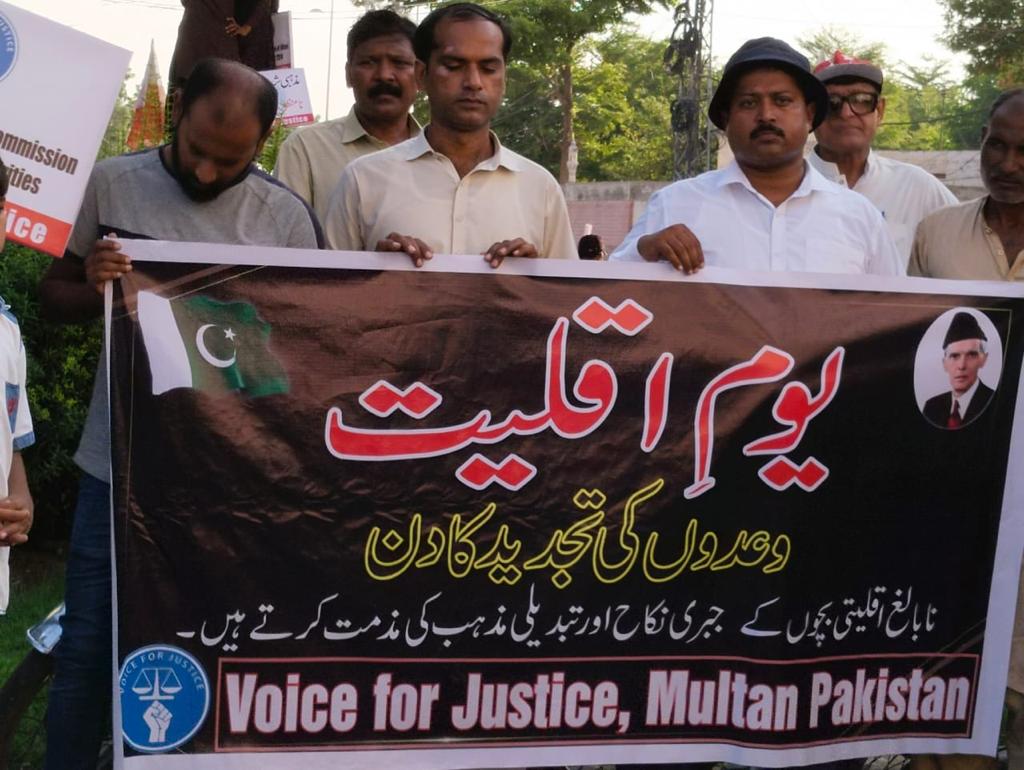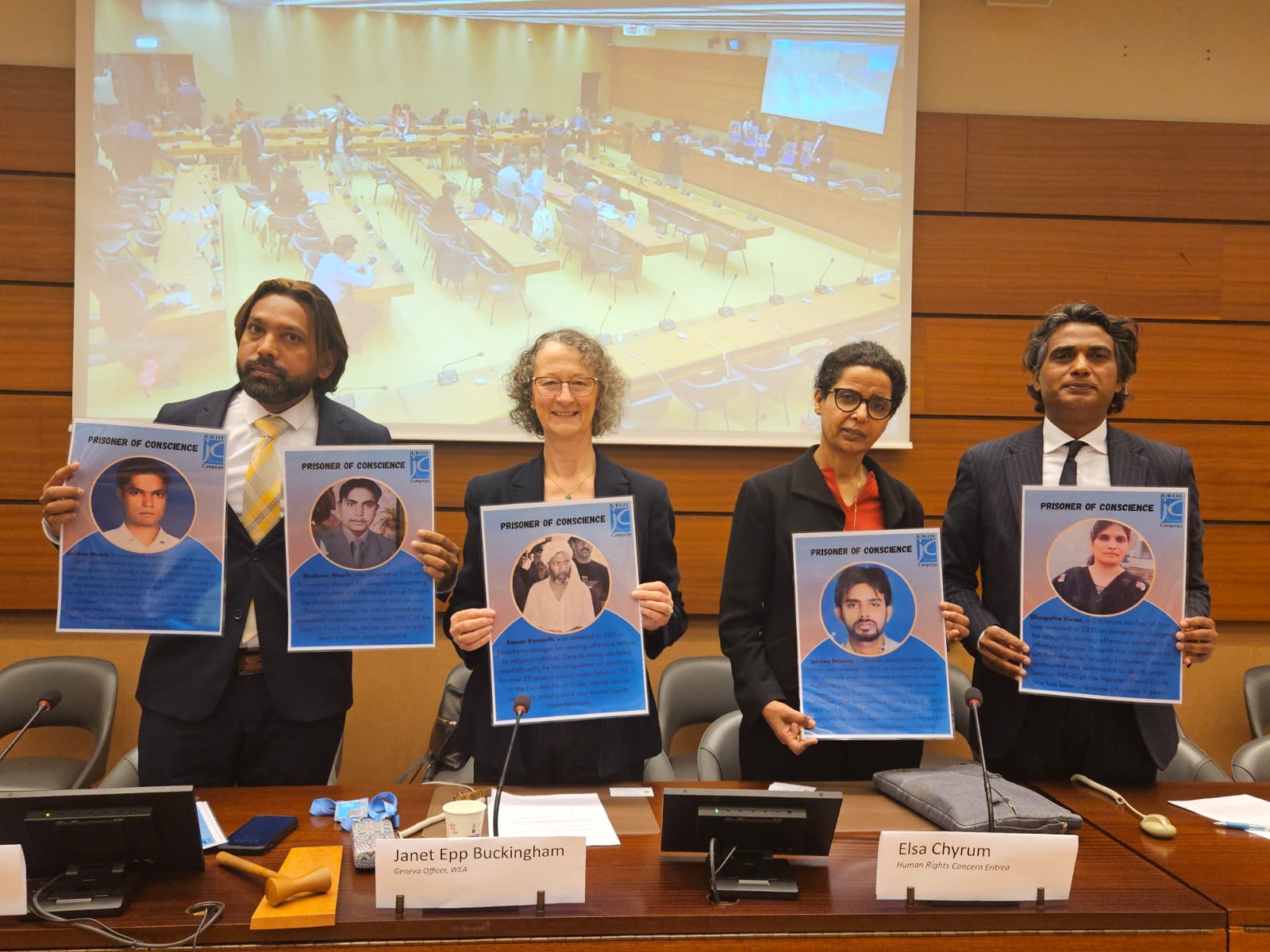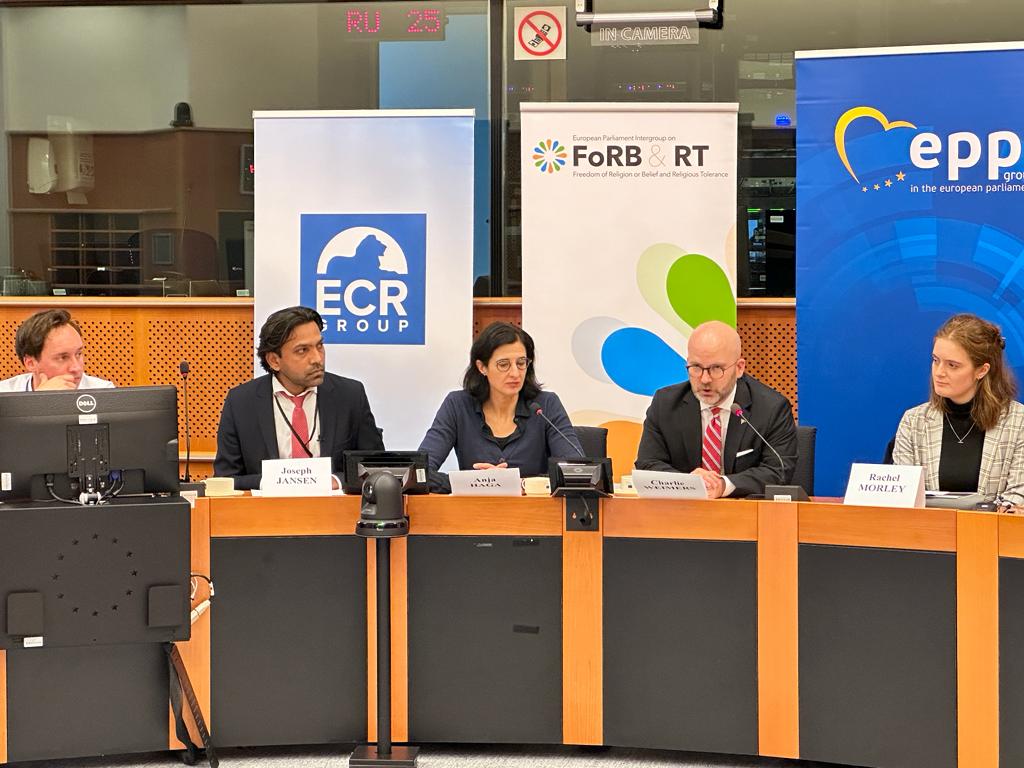Karachi: The government must introduce legal and administrative safeguards to protect minorities against human rights violations, take serious steps to stop forced faith conversions, and prevent the misuse of blasphemy laws. These demands were made in the press statement to observe national minorities’ day.
Nuzhat Shereen said that the founder of Pakistan, Muhammad Ali Jinnah envisioned Pakistan to become a peaceful country, where there is no discrimination, intolerance, and violence on any ground and all citizens are able to enjoy equality of rights, opportunity, and treatment, and are free to practice their faiths, however, the government needs to introduce reforms in laws and policies that affect minorities.
The Spokesperson of Voice for Justice, Ilyas Samuel said that the majority of the cases under charges of blasphemy are based on fabricated accusations which make the accused face several years of imprisonment, in contrast, the complainant making false allegation enjoy impunity despite committing forgery, and sometimes the accusation lead to mob violence against the accused, and the minority community, which must be stopped with legal and administrative measures on the part of the government.
Naghma Shiekh said that citizens are guaranteed the right to religious freedom in Article 20 of the Constitution of Pakistan, it is illegal and unethical to compel them to change their faith by use of threat, coercion, and/or manipulation. He observed that the lack of enforcement of existing domestic laws remains a key impediment to preventing forced conversions and emboldening perpetrators to escape justice for their crimes under the guise of faith conversion and marriage.
Hamayun Waqas said that our society has been intoxicated with hatred, discrimination, and extremism due to a lack of inaction by the government machinery, which resulted in an increase in incidents of intolerance and violence in the name of religion. The government must effectively take action against those who take the law into their hands and engage in targeting religious minorities.
Jai pal Chapria said that the fulfillment of the rights of religious minorities is contingent upon an open acceptance of religious diversity and equal status as citizens. He noted that the real onus lies with the federal and provincial governments to address gaps in governance, and address serious issues that minorities face in Pakistan.
Kulsoom Emanuel said that the federal and provincial governments must implement the orders passed by the Supreme Court on 19 June 2014 regarding minorities’ rights.
Zahid Farooq said that the federal government has notified the curriculum for religious education solely for non-Muslim students for Grade I-V and VI-VIII, which comprises content from seven religions including; Christianity, Hinduism, Sikhism, Baha’i, Kalash, Buddhism, and Zoroastrianism, therefore, the Punjab and Sindh government must adopt a curriculum for the subject of religious education, and develop the textbooks and engage teachers to teach minority students the subject in schools.
MPA Naveed Anthony said that a 5% percent job quota for minorities must be effectively implemented, however, the government needs to provide education facilities, and educate marginalized communities so that they are able to meet the eligibility criteria to avail decent jobs. Pastor Robin Raiz said that the government must implement laws to protect minority rights.
In order to ensure equality of rights, religious freedom, and religious tolerance as per the constitution of Pakistan, we call upon federal and provincial governments to take the following measures:
- Affirmative action must be taken for the protection, promotion, and fulfillment of minority rights, particularly in the context of reforming the existing civil and criminal justice system to render it more sensitive to the needs of victims from minority communities. Moreover, use existing protections in the laws to prevent the miscarriage of justice, and bring the perpetrators and abettors involved to justice.
- A committee of experts comprising jurists and human rights activists should be constituted to revise the draft bill introducing safeguards against forced faith conversions in conformity with international human rights standards, including, in particular, with respect to religious freedom, as well as with the principle of legality.
- A bill to amend the Child Marriage Restraint Act must be moved in the national and provincial legislative assemblies to ensure that the minimum marriageable age is set at 18 years for both boys and girls, and the marriage with minor children is declared null and void. As an interim measure, a hold should be placed on the validation of any marriages associated with faith conversions by the magistrates. It is necessary that verification or ascertaining of age, and free will should be required by senior civil judges in such cases.
- A bill criminalizing forced conversions should be tabled in the national and provincial legislative assemblies, and vetted by the standing committees of the parliament on human rights, and the ministry of law and justice, rather than the ministry or standing committee on religious affairs.
- Ensure that the allegations of forced conversion and forced marriage are independently, impartially, and promptly investigated with a view to all conditions of coercion or threat under which marriages and religious conversions are made, and to apprehending the perpetrators to bring them to justice in proceedings that guarantee the right to a fair trial, and ensure that victims have the right to access to justice and to an effective remedy.
- Introduce effective legal and administrative safeguards to prevent mob violence, and stop the misuse of the blasphemy laws to settle personal scores, political rivalries, or property disputes.
- Ensure that all those who incite or engage in violence against others based on allegations of blasphemy, as well as those who falsely accuse others of blasphemy, are brought to justice and duly punished;
- Legislative and educational measures are taken to ensure that girls and women are free from physical abuse, domestic and sexual violence, or being subjected to any medical procedure without informed consent, and deprivation of reproductive autonomy and rights.
- The curricula and textbooks must be reviewed to make education an instrument for promoting diversity and social cohesion to comply with Article 22(1) of the Constitution of Pakistan, which guarantees that “No person attending any educational institution shall be required to receive religious instruction, or take part in any religious ceremony, or attend religious worship, if such instruction, ceremony or worship relates to a religion other than his own.”
- The subject of religious education rather than Ethics in lieu of Islamiyat must be taught to allow minority students to study their respective religions in educational institutions.
- A quota should be introduced and implemented for admission to educational institutions for students belonging to religious minorities.





